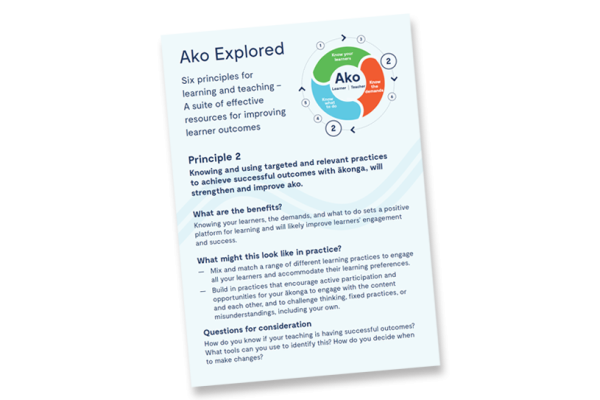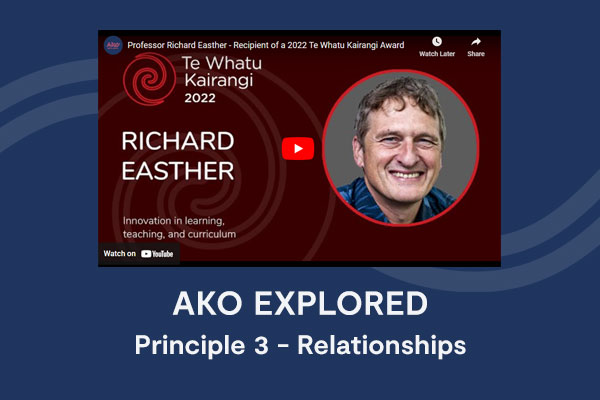Video
Know what to do - Ako Explored Principle 2 | Associate Professor Kathryn MacCullum
Supporting learners,
Educational outcomes,
Teaching strategies
Published: 24 October 2023
Knowing and using targeted and relevant practices to achieve successful outcomes with ākonga (learners), will strengthen and improve ako (learning and teaching).
Associate Professor Kathryn MacCullum utilises a wide range of strategies to engage learners, but at the core of her teaching is the ability to choose the right suite of practices to engage learners and enhance their success.
Associate Professor Kathryn MacCullum - Recipient of a 2019 Tertiary Teaching Excellence Award.
Ako Explored addresses the urgent and persistent need to improve learning and teaching in the tertiary sector in Aotearoa. It outlines six principles and indicative practices directly applicable to educators across this diverse sector.
Partnered with
Ako Explored

